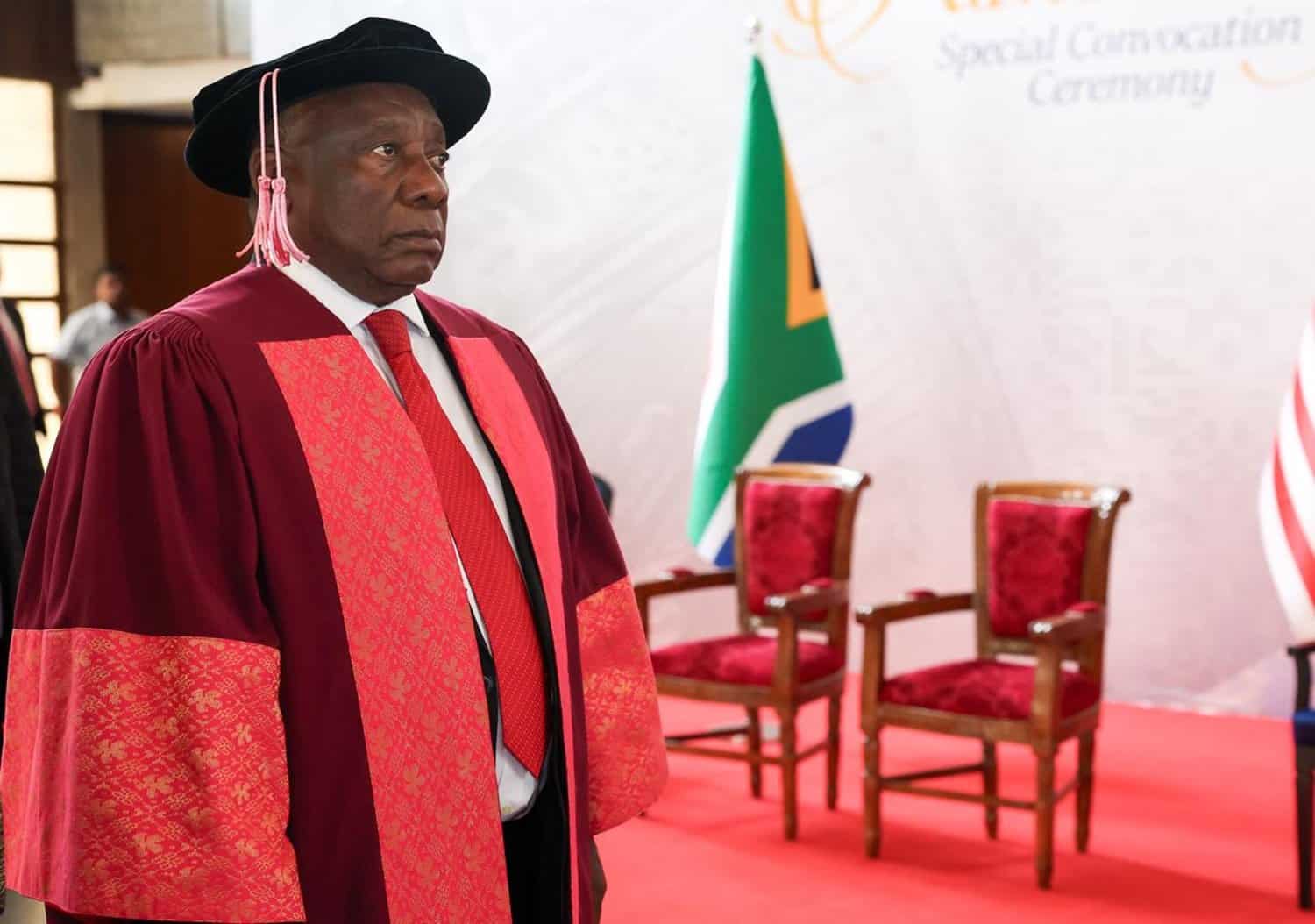Politics are not in the eye of the beholder, especially when we are being gaslit.

Imagine a car. What do you see? What does it look like? Is it moving?
Between 1% and 4% of the world’s population can’t.
It’s a condition called Aphantasia, and it affects a person’s ability to visualise mental images.
For many South Africans, a state of political Aphantasia has set in. They simply cannot visualise how their community, suburb, city, province, or the country can recover from decades of neglect, corruption, and decay.
Their daily life is a worry about whether there is water to wash themselves and electricity to make breakfast. On the way to work, they worry if they will be a victim of crime and, during the commute, whether the ride will be derailed by potholes and broken traffic lights.
At work, they worry whether their home is safe from a scourge of burglaries, and, if they were to get sick, whether they would be up to standing in a queue for hours to get help. At home, they worry about whether they can afford to feed their family.
No wonder South Africans are among the most stressed globally.
ALSO READ: A VIEW OF THE WEEK: Lying in Parliament or skipping a red light, we are all the same
Distorted vision
While Aphantasia is a lack of mental images, Metamorphopsia is the distortion of objects.
Many South Africans would be wondering whether Malaysia’s Universiti Malaya may have been suffering from such a condition when it awarded SA President Cyril Ramaphosa an Honorary Doctorate in International Relations this week.
While Ramaphosa may have been part of peace negotiations in both South Africa and Northern Ireland decades ago, the country he runs is currently in choppy international waters.
While our decision to take Israel to the International Court of Justice over “genocide” in Gaza has been applauded by many countries and angered others, our relationship with one of our biggest trading partners, America, has hit rock bottom.
We have been accused of genocide ourselves, Ramaphosa was ambushed at the White House, and there are plans to sanction ANC leaders. SA officials have openly praised Iran, while others have had to publicly apologise to a United Nations Special Rapporteur for legal papers served on her without their knowledge. All this while the ANC’s relationship with Russia continues to raise eyebrows.
Away from politics, our trading numbers for August this year were R1.7 billion lower than the same period last year, and under Ramaphosa’s presidency, we were placed on the global money-laundering watchdog, the Financial Action Task Force (FATF)’s greylist. We were only removed from the list last week.
Our relief valve, Brics, has also failed, and we look like a second-class partner in a coalition that promised a lot of bite but has been toothless and of very little benefit to South Africa.
None of these should earn you a gold star in international relations.
ALSO READ: A VIEW OF THE WEEK: Ramaphosa peace summit snub shows SA is being used and abused
Vivid imagination
If some lack mental visualisation, others are complete daydreamers.
Last week, we saw PA MP Ashley Sauls display an embarrassing lack of procedural knowledge and, at times, common sense while participating in parliament’s ad hoc committee on alleged corruption, political interference, and criminal collusion within the SA Police Service (Saps).
Whether he was praising the dismantling of the political killings task team or trying to force his theories on who should have rushed to AKA’s side after his death, Saul’s vivid imagination was running wild. It was only made worse with a passionate sermon to protect face that drew a sarcastic “I almost said: ‘Amen'” by former police minister Bheki Cele.
Ahead of the local government elections next year, politicians are dreaming up all kinds of plans to grab power, especially those in minority parties that believe they are stronger than they actually are.
They are told they are kingmakers and visualise themselves as kings. This was seen in some parties in the Johannesburg government of local unity (GLU) this week, pushing a motion of no confidence in an attempt to gain more influence in council.
But what matters most is not in the mind’s eye, but what is reality. And the reality is that most councillors in Johannesburg, like in dozens of municipalities across the country, are failing their communities. Preoccupied with position and point-scoring, they have abandoned the people who voted for them.
They will return early next year to plead for our votes, but hopefully, we will not be blinded by disillusionment, distorted views, or false promises.
NOW READ: A VIEW OF THE WEEK: Embarrassing Parliament sideshows put SA at risk






!['It's terrible what they doing to people, it's got to be stopped,' Trump on white genocide in SA [VIDEO]](https://media.citizen.co.za/wp-content/uploads/2026/01/ramaphosa-trump-19-300x200.jpg)